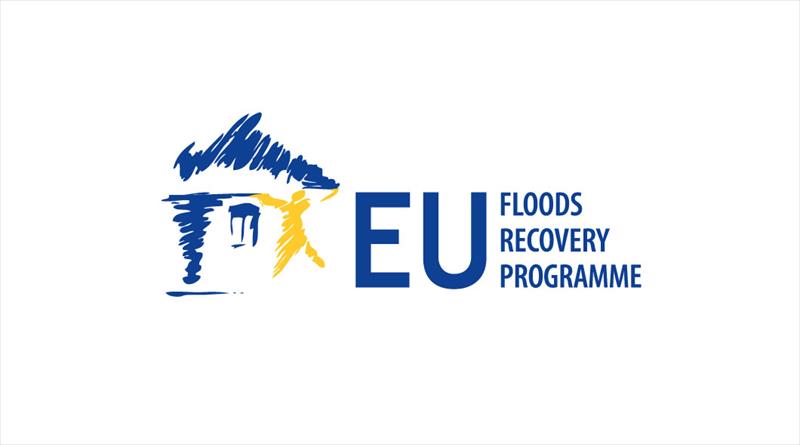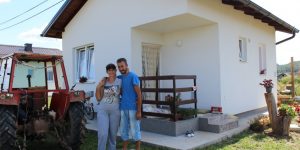Last week marked the completion of grant payments to the 56 selected flood-affected small and medium-sized enterprises (SMEs) under the EU Floods Recovery Programme. The grants will help the selected SMEs to get back to business after the floods in May 2014, and to assist in retention and generation of jobs threated by the floods. Individual grants range from EUR 5,100 to EUR 46,000 (10.000 to 90.000 KM), and all selected grantees are co-financing the EU investment from their own resources.
The total value of the EU investment to the SMEs is EUR 1,472,521 (2,880,000.00 KM), which is expected to result in retention and generation of up to 2,000 jobs across the flood-affected areas in BiH. “To achieve this objective and to boost the post-flood economic recovery in local communities, the EU is only supporting healthy enterprises, meaning SMEs which have no outstanding tax debts, which operated without losses prior to the floods and which already have commercial linkages with suppliers, other SMEs and micro-producers,” said Andy McGuffie, Spokesperson of the EU Delegation to BiH and EU Special Representative’s office.
The first results of the EU’s investment are already starting to be seen. One of the EU’s grant recipients is Voćar d.o.o from the Brčko District, which specialises in production of snacks and waffles. Founded as a small family business in 1989, Voćar has evolved to a medium-sized business which exports its products to other countries in the Western Balkans region, EU member states and the USA. The CEO, Esed Musić, noted that the EU grant of 80,000 KM was of essential importance in retaining both the production levels and jobs. “The EU funds were used to purchase supplies which were needed to ensure continuity in the production process and keeping the 43 employees that we currently have on the payroll,” said Musić.
As for Saša Vajić, the CEO of Saša-Trade d.o.o from Doboj which produces lighting supplies and conducts product research and development in the LED sector, the EU grant was the first financial assistance that the company has received since its founding in 1998. “This was timely and efficient assistance in the amount of 50,000 KM, which we used to ensure that our business operations remain intact. The money ensured that we could retain the existing jobs, and it also helped us to increase the number of employees from 30 to 35,” said Vajić.
The utilisation of the grant funds will be closely scrutinised by the EU Floods Recovery Programme team, and the selected SMEs are subject to a continuous verification process and site visits to ensure that the EU funds are deployed appropriately and effectively, and that the companies maintain their adherence to tax payments. “Should verification visits show any irregularities and breaches of contractual obligations, the grants may be withdrawn and reallocated to other companies,” added McGuffie.
The EU Floods Recovery Programme was launched to restore normal living conditions in local communities and ensure that the aid reaches the most vulnerable ones in the aftermath of floods in May. Funds are used to restore public services and infrastructure, rehabilitation of housing units for the most vulnerable people, and for social and economic recovery of local communities. The value of the overall programme is 43.52 million, out of which 42.24 million is provided by the European Union.
This assistance is a part of the funds that the European Union pledged at the donor conference in Brussels in July 2014. Activities are focused on rehabilitation of up to 4,000 housing units for approximately 14,000 residents, and key public services and infrastructure (including schools, medical facilities, water supply and sewer, and smaller roads and bridges) at 50 sites, as well as providing assistance to retain and generate around 2,000 jobs in flood-affected areas. Beneficiary selection is based on the Recovery Needs Assessment, public calls and cooperation with local authorities, with special emphasis on the most vulnerable population categories, such as the elderly, families with children and persons with special needs. The programme is implemented by the United Nations Development Programme (UNDP), the United Nations Children’s Fund (UNICEF) and the International Organisation for Migration (IOM).
For more information, visit the EU Floods Recovery Programme feature page




